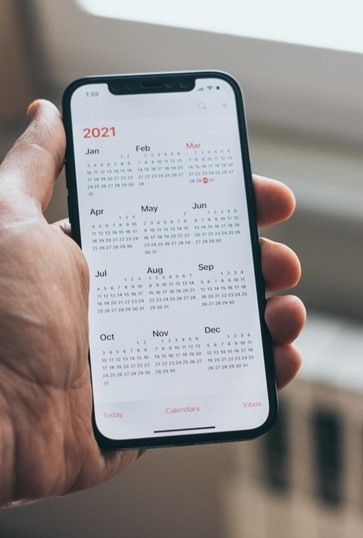Brett Amendola is a former Vice President and Financial Advisor with two of Wall Street’s largest brokerage firms with decades of knowledge and experience in the field. In the following article, Mr. Amendola discusses how using a calendar can help build financial wealth, resolve debts and plan for the financial future.
It’s easy for life’s constant stream of events to get in the way of budgeting finances. Without warning, monthly payments can be overlooked, obligations fall behind, and instantly, financial trouble is at the forefront, all because of a little disorganization. Rather than playing with fire, using a calendar can help keep track of schedules and protect finances reports Brett Amendola.
By using a dedicated financial calendar, pay schedules, income and due dates can be noted almost as a guarantee that these responsibilities will never again be overlooked. With a clearer understanding of individual finances, budgets and savings, money can be managed more efficiently. In this article, Brett Amendola explores some of these points and explains why anyone interested in increasing financial wealth should be using a calendar to maintain and grow finances.
Using a Calendar Can Help Track Income, Bills, and Budget
Feeling overwhelmed by the constant in and outflow of money? Simplify financial commitments by organizing them into a calendar. Start each month with a clearer understanding of paydays, due dates, and financial obligations, and then plan according.
Brett Amendola recommends starting with the total monthly income and planning the expenses for the rest of the month from there. However, monthly income can change, especially with hourly employees, so estimate the average number of hours worked per month to get a baseline of monthly income. Doing so ensures that bills are always covered and that there is money left over for savings and other expenditures.
Using a calendar to track a budget ensures more often than not those expenses are being accounted for. This method can help avoid overspending and prevent piling credit card debt says Brett Amendola.
Tracking Finances Over Time Can Help Assess Financial Growth
When it comes to financial growth, it’s important to have a clear understanding of a starting point and a goal. By tracking spending habits over time with a calendar, this establishes a better sense of where money is being spent to determine if a budget reevaluation is needed. This information can also help assess progress and set future financial goals reports Brett Amendola.
For example, a good starting goal is to be able to save $5,000 over the course of a year. By tracking finances on a calendar, month 1 can visibly show if after bills, any surplus remains. Some necessary adjustments can be made almost immediately in month 2 to increase the savings surplus. This level of organization keeps a person on track, staying consistent to reach, and maybe even surpass yearly financial goals.
Brett Amendola recommends looking back over the financial calendar every quarter to identify any strengths and weaknesses and adjust accordingly. By using a fiscal calendar, individuals experience a greater appreciation for a financial plan by seeing the direct benefits over a three-month period.

Using a Calendar Can Help Plan for Tax Season and Large Expenses
Although it may seem like an eternity away, tax season has a sneaky way of appearing when it’s least expected. When ill-prepared, it can be a scramble to get the paperwork in order and get the most out of the return. With a calendar, the last-minute rush is avoided by tracking important tax dates for documents and planning ahead says Brett Amendola.
Brett Amendola explains that a calendar can help track the tax filing date, when estimated payments are due, and when to expect to receive a refund.
Calendars also help track and budget other large seasonal expenses, like holiday gifts and vacations. By getting a head start on planning, credit card debt can be avoided, and a better financial position is achieved says Brett Amendola.
Calendaring Payments Will Pay Off Debt and Build Credit
If already in debt, using a calendar can help pay off loans and build credit reports Brett Amendola. By tracking monthly payments and interest rates, debt can be paid as quickly and efficiently as possible. Brett Amendola recommends using the snowball method, which involves paying off debts from smallest to largest.
As each debt is paid, more money can be put towards the next one, which can pay off the debt faster. Financial calendars can also help keep track of credit scores and monitor progress as debts are paid and credit ratings improve.
A Final Word on Using a Calendar to Help with Financial Wealth
No matter where an individual is on their financial journey, using a calendar can help with staying on track and making better decisions with money. By taking the time to track income, bills, and spending habits, a clearer, more visible way of understanding finances can help people make more informed decisions about their money.
Sign up for free Ocean City news updates.
Powerful Wealth Building Resources







